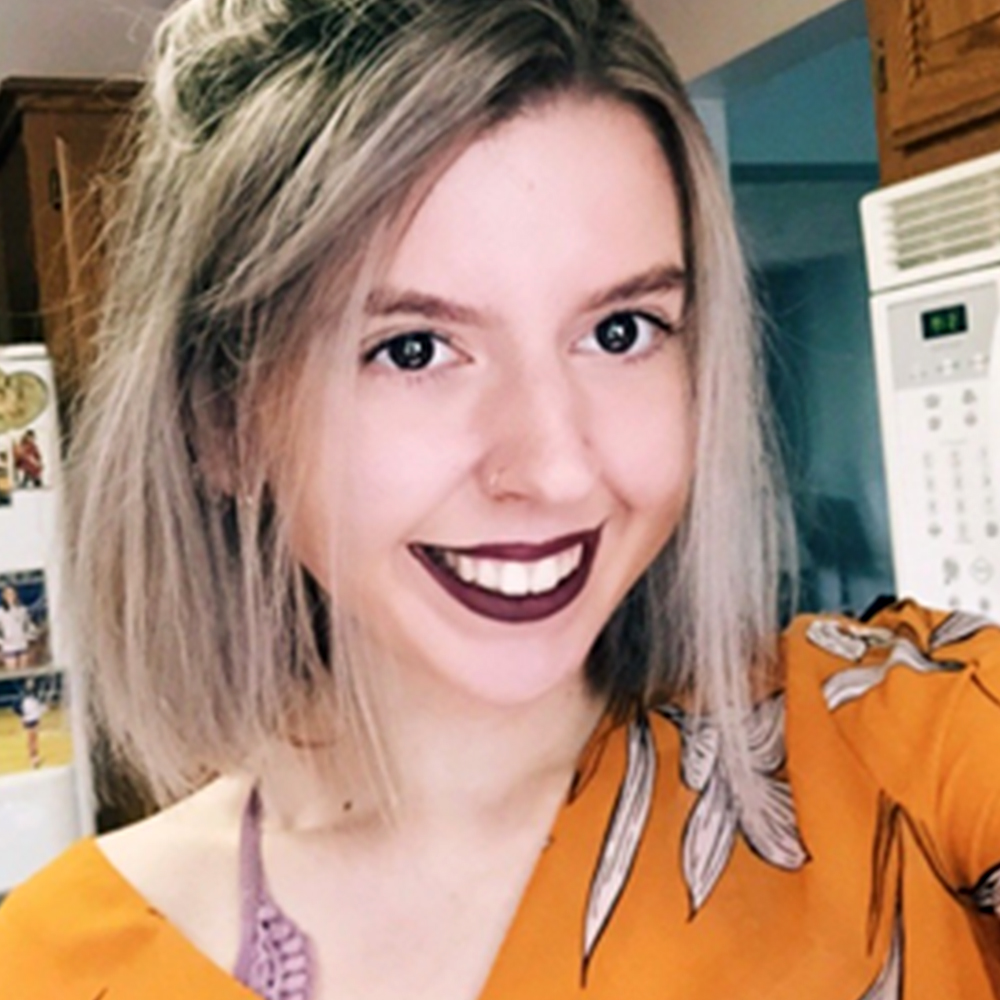Posted on Wednesday, August 5, 2020
Meet Emily Krinos, one of 10 students selected for a 2020 Summer Research Fellowship. Emily, a senior biochemistry major from Hubbard, Ohio, spent her summer studying geosmin, an organic compound that provides that earthy scent after a rainstorm. Outside the lab, Emily is involved with Habitat for Humanity, the American Society for Biochemistry and Molecular Biology, the Chemistry Club and the Student Alumni Association. A dean’s list student, she is also the recipient of the Marmora Maude Dunlap and Dr. Edward A. Dunlap ’32 Scholarship, which is awarded to senior chemistry, biology and physics majors. Emily was mentored by Dr. Peter Smith, professor of chemistry.
 Why did you apply for the Summer Research Fellowship?
Why did you apply for the Summer Research Fellowship?
I applied to the Summer Research Fellowship to get a head-start on my capstone because it is time-consuming and requires a lot of lab time, and this is much easier to achieve when I have an eight-hour work day. Also, this fellowship provides me with more lab experience, so when applying to graduate school I am a more desirable candidate.
What was the subject of your research?
My research project is focused on organic chemistry. I want to synthesize a natural product called (-)-geosmin. This compound is typically produced by bacteria or fungi in the soil and is the source of the musty, earthy scent after rain or high humidity. Dr. Smith and I are interested in (-)-geosmin because it can potentially be employed as trap-and-kill mosquito bait which could be used to control the spread of insect-borne diseases, such as malaria.
Ultimately, the goal of my research is to obtain pure (-)-geosmin, derivatize it (which is essentially altering a structural characteristic of the molecule), and test the potency of (-)-geosmin and its derivatives as mosquito bait using the biology departments facilities.
Dr. Smith had the idea for this project when he read a paper that described testing (-)-geosmin as mosquito bait. He spoke to Dr. Diana Ortiz, an associate professor of biology at Westminster who conducts mosquito-based research, about the possibility of testing this compound on her insects. The project was then introduced to me and it became my senior capstone which I submitted as a proposal to the Drinko Summer Fellowship.
 Tell us about your faculty mentor.
Tell us about your faculty mentor.
I have been working with Dr. Peter Smith on various research projects and as a lab TA for a little over a year now, so having him as my faculty mentor for this fellowship was an easy transition from the school year. Both of us had no idea how far we might get in this research, or if any aspect of it would be successful. Luckily, both of us work well solving strange and unexpected problems together and that has helped advance our research further than we believed would happen in four, short weeks.
What are your post-Westminster plans?
After graduation, I hope to be accepted into a Ph.D. program for organic chemistry.
To learn more about Westminster’s biochemistry major, visit www.westminster.edu/biochemistry.
Sponsored by the Drinko Center for Undergraduate Research, Summer Research Fellowships at Westminster College allow students to conduct hands-on research and creative projects under the guidance of our experienced faculty mentors.